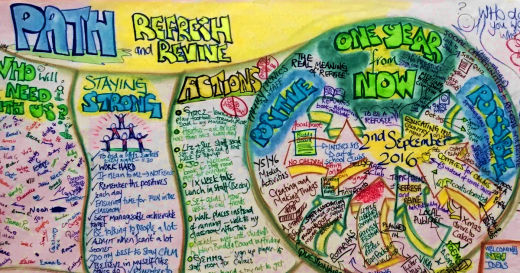Inclusive Solutions have been piloting this work in the last three years, making traditionally clinical plans more person-centred for children, families and carers.
Author: Colin Newton
Many children and young people are recovering from brain damage, accidents or longer term disability including those with challenging behaviour, or social and communication issues. Some have withdrawn to live in their bedroom, very likely stopped going to school, college or any positive community activity.
Such young people include those who:
Inclusive Solutions are one of the UK’s leading professional facilitators of social and educational inclusion and provide training for groups of teachers, parents, families and social workers - aiming to make services better and improve the lives of vulnerable people by increasing the quality of the Person Centred Planning that is provided.
They offer an intensive 'kick start' programme of carefully clinically supervised Inclusion Facilitation for 12 weeks for each young person supported.
Inclusive Solutions have been piloting this work in the last three years, making traditionally clinical plans more person centred - and the feedback has been very positive. Those who have already been supported in this way - when asked - have encouraged the team to work with more young people recognising the value of quality person centred planning and direct meaningful support to pursue goals and dreams. The team have learned from them as they have developed these ideas.
The families and carers of these young people also benefited by the impact of this work. Such families can be impoverished, in crisis, swamped or confused by care staff and clinical professionals or simply struggling to meet the social or emotional needs of their young person. Parents and carers of young people already worked with wanted more and hoped others would benefit from this way of working.
Inclusive Solutions offer a person-centred approach to planning and use an Inclusion Facilitation (IF) model of support to enable young people to re-engage in community activities, such as a return to education, apprenticeship and/or employment.

Inclusion Facilitation is, at its heart, a way to change someone's life around and is a 2 stage process:
The team offer to deliver an intense 12-week programme, and by the end of it a young person will have been supported to see their potential and to radically change their aspirations for the future and their inclusion in their local community. Inclusion Facilitation as a model for building aspiration and inclusion works for young people/young adults of all ages. It provides the space to co-create meaningful opportunities in community life.
The 12-week programme starts with a person centred planning event called a PATH.
PATH is a person-centred planning tool which focuses on what a good future looks like for an individual and then considers the supports and actions that will be needed to move towards this future. By the end of the PATH the young person will have a clear picture of where they would like to be in the future. The PATH is also a great tool for the Inclusion Facilitator and the young person to use at each subsequent meeting. The PATH is a way for the young person and their families/supporters to map out the changes the young person wants to make in their life.
This way of working is uniquely placed to meet those needs that are not currently well met by traditional Local Authority or a range of clinical services currently on offer. Inclusion Facilitation combines person centred planning, with clinically supervised intensive weekly visits to ‘jumpstart’ a young person’s life opportunities. It contrasts with existing services which tend to be based on a ‘deficit model of disability’ (focused on what’s wrong with the young person rather than the support they need), which can encourage them to become passive rather than taking the initiative for the change they want to see in their lives. The focus is on creating a ‘good life’ for the child or young person.
Supervision is offered weekly by qualified psychologists who specialise in inclusion.
Inclusion Facilitation is not a new model for change - the University of New Hampshire (US) have employed Inclusion Facilitators in mainstream education for over 20 years – essentially providing a team that will provide whatever is necessary to strengthen a child or young person’s inclusive education placement. (Inclusion Facilitators Guide, 2005). But it is a relatively new model in the UK.
Learning from previous successful work with a small group of disabled young people, has shown that:
Find out more on the Inclusive Solutions website and email Colin Newton.
The publisher is the Centre for Welfare Reform.
Inclusion Facilitation © Inclusive Solutions 2017.
All Rights Reserved. No part of this paper may be reproduced in any form without permission from the publisher except for the quotation of brief passages in reviews.
community, disability, England, Inspiration